[Click here to go back to Day 1.]
8:00am Hal Leonard Showcase: Recent Classical Piano Publications from Hal Leonard
During this showcase sessions by Hal Leonard publishers, we were informed about a variety of new publications available. Of special interest are the new "At The Piano" books from Henle Verlag. These books contain original pieces by one composer, arranged and labeled by level of difficulty. The book contains information about the technique and interpretation of the piece. According to Henle, the books are most appropriate for Jose who are returning to the piano after a longer break. It's interesting to see Henle branch out into pedagogical publications!
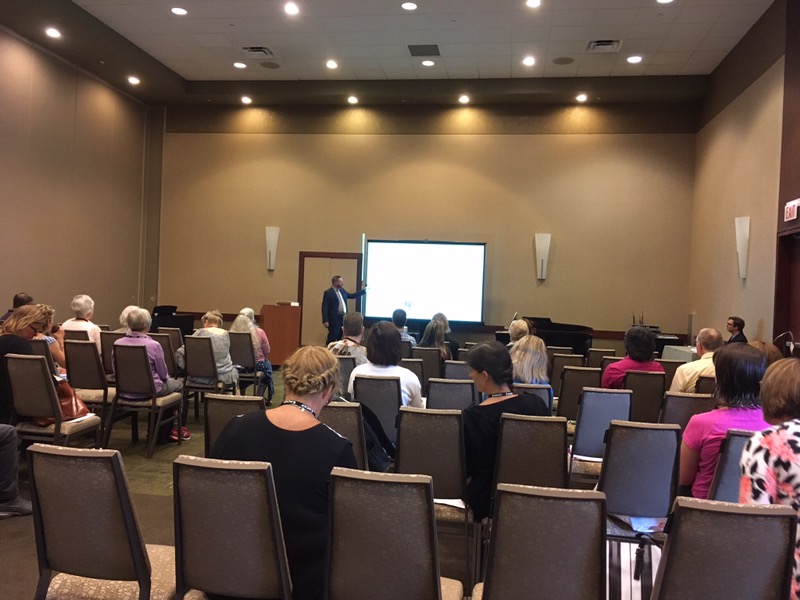
9:00am Lost In Translation: Helping Students Connect with their Repertoie through the Subtleties of Musical Languages, by Ryan Greene and Thomas White.
In Ryan and Thomas's presentation, they shared some terms they have discovered and developed as a way of categorizing and talk about recognizable styles of music. Along the way, they shared plenty of musical example illustrating each style.
The styles include the Brilliant Style (as seen in scale passages in pieces by Clementi and Mozart), the Learned (Strict) Style (hearkening back to Baroque contrapuntal styles), the Singing Style (Chopin Nocturnes are exemplary), the Pastorale Style (based and nature and folk tunes and dances), the Turkish Style (an influence originating from the 1600s when the Ottomans were sieging Vienna), and Exoticism (when composers mimic a musical culture without complete integrity, such as "cowboys and Indians" subject matter or oriental music).
I found these categories fascinating. These are styles we commonly see in both pedagogical and standard classical repertoire and no doubt will prove useful for helpful students transfer experiences to new pieces.

10:30pm Teaching Demonstration: Sara Ernst and Jovanni-Rey de Pedro, moderated by Robert Duke.
Sara Ernst shared a couple of video clips from a lesson with her 7-year-old student. It was so neat to get a window into an excellent teacher's studio when working with a young beginner!
Robert Duke observed that Sara was able to allow the student's fidgeting and moving during the lesson time and still maintain focus of the lesson. These movements are not necessarily a distraction or something to avoid, especially when the student is focused.
Robert asked: How do you get to the point where the student always looks at you and makes eye contact as you are interacting back and forth? Sara answered that this is something at times that she has had to specifically teach students to do.
Another observation Robert made is that Sara allowed the student time to express himself. She stated that she is deliberate to always allows time for the student to think and express themselves.
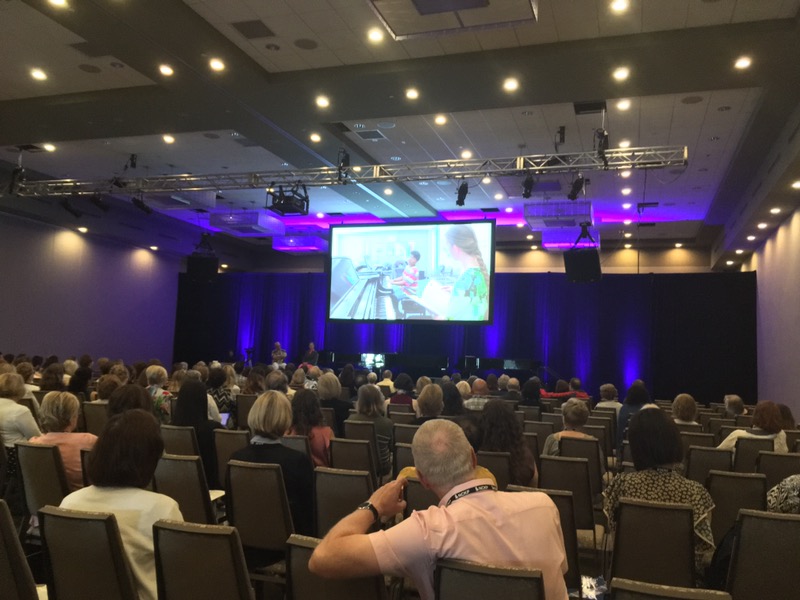
Next, Jovanni-Rey de Pedro gave a short lesson to a college junior (not his own student). Jovanni explored with the student how to make her Mozart A Major Sonata interpretation express more anguish, more biting sounds. They then explored imagining the piece as a string quartet. Jovanni modeled: what's the point of this? Is this phrase a confirmation, or a statement?
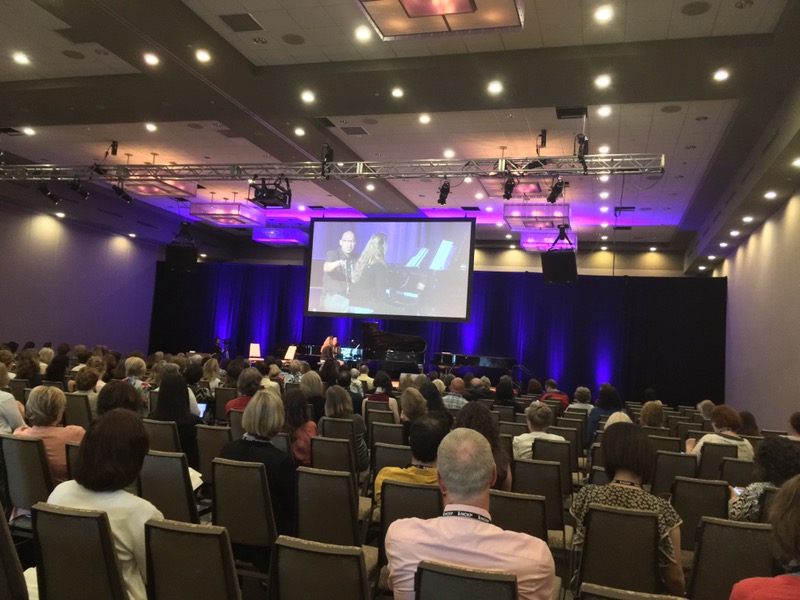
Robert Duke stated that a useful question to keep in mind as a teacher is "What did you notice?" as opposed to "What did I like?" Tell the student "I noticed…" instead of "I liked…" or a similar phrasing.
Robert encouraged the student to take more time to think before starting the music. Think about what you want to have happen after the silence. It not only helps mentally, but it also helps the listener.
In an attempt to be kind, many teachers give mushy feedback. Such as: "Almost…kind of…getting better…" It's often better to be direct and clear: "No, that's not it." And then: "Yes." Positive feedback is not really for encouragement. It should be feedback in response to doing something behaviorally ideal. Clear feedback is most useful.
At the end of the session, the audience had opportunity to ask questions directed to the teachers or Robert Duke. This session for me was a highlight — first, because I appreciated NCKP's work towards these actual live demonstrations exploring effective teaching (especially including students in their first few years of study!) and secondly because I am a big fan of Robert Duke's work. Read more about his book, which is my favorite book on teaching, here.
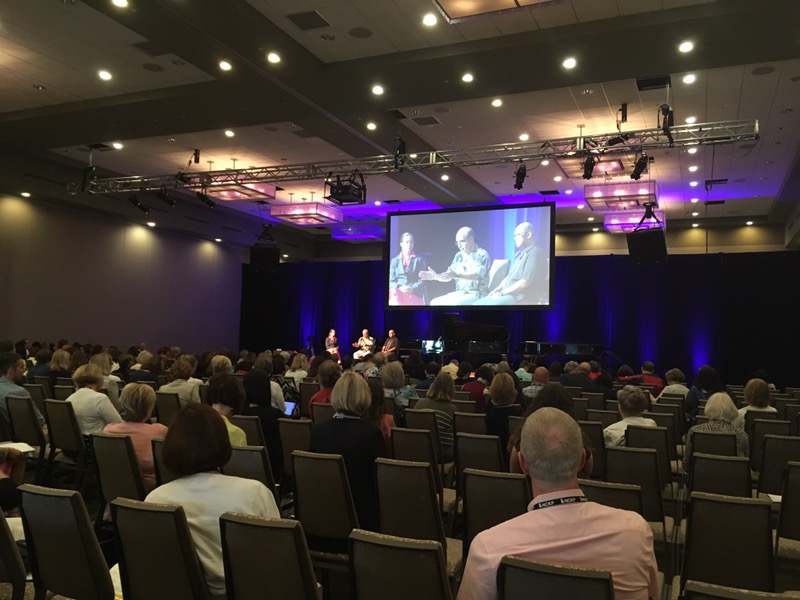
During the lunch hour, I helped Eik Siang Mar in the Sproutbeat App booth for awhile. It was fun to hang out with her as well as to tell other teachers what I like about Sproutbeat!
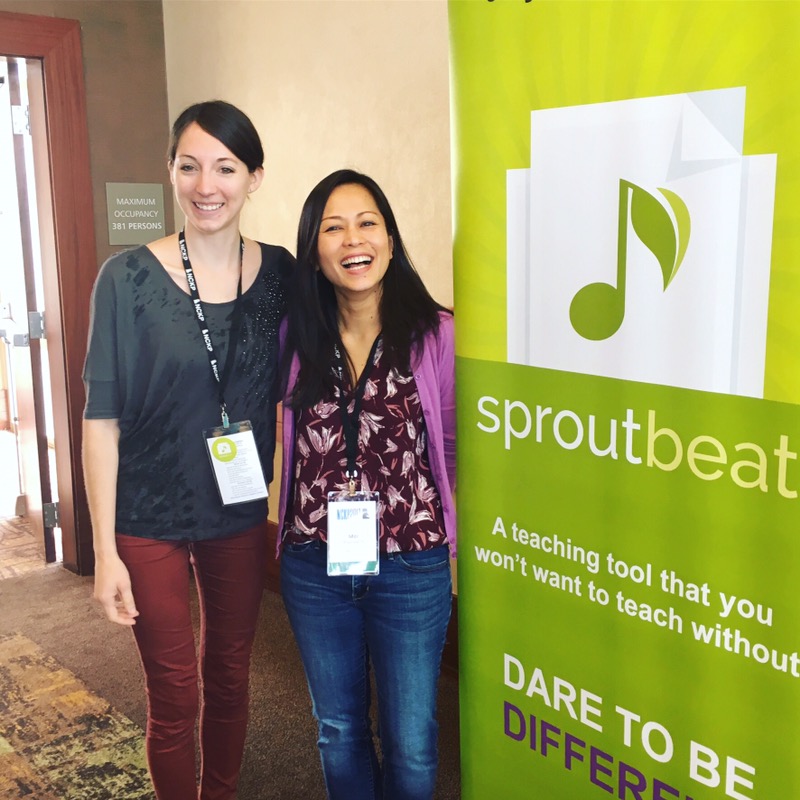
1:30pm Keynote Address: Teaching Music by Encouraging Creative Engagement, by Peter Webster.
Peter Webster's talk shared his ideas about the the role of creativity in music learning and effective teaching. He referenced the work of several classic educational psychologists and made a case for student-centered learning, the nurturing of independent thinking, and the value of creativity-based musical experiences. 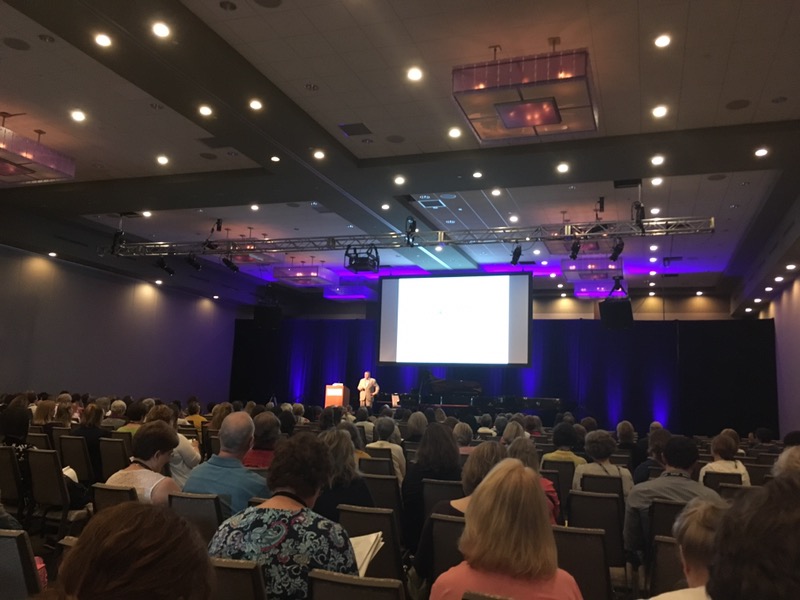
3:30pm The Pedagogical Piano Works of Argentina, Brazil, and Mexico, by Joao Paulo Casarotti, Desireé González, and Jovanni-Rey de Pedro.
In this session, I was excited to learn about several Latin American composers I was previously unaware of. In this lecture recital, the presenters shared background information about the composers and selected pieces, and then performed them.
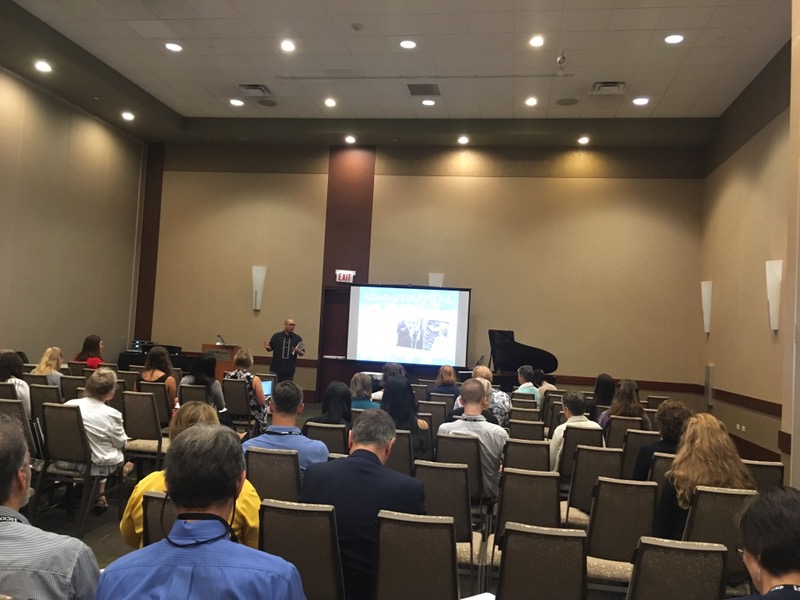
5:00pm Publisher Showcase: Hal Leonard and Piano Safari.
I popped into both the Hal Leonard Showcase session and the Piano Safari session, seeking to learn about latest publications. If you haven't heard about Piano Safari's new theory books, you'll want to get more information here!
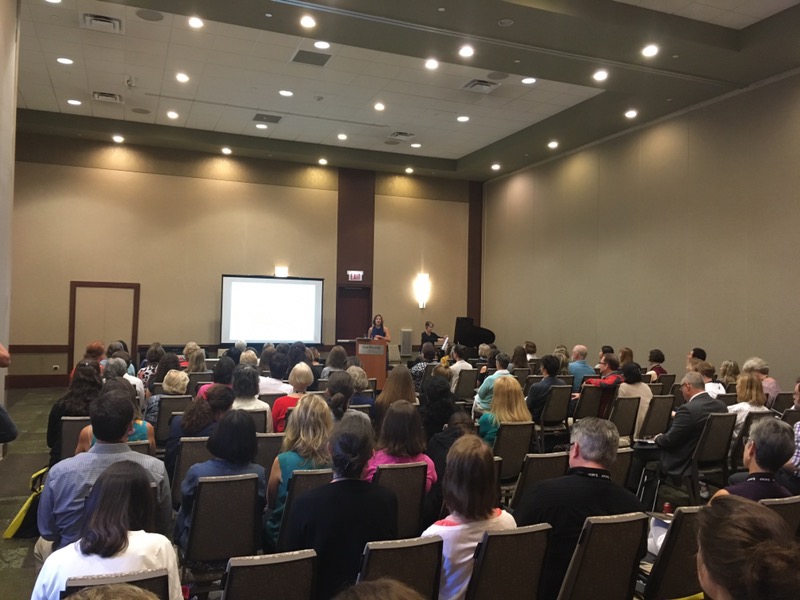
After today's sessions were over, I headed over to a lovely meetup that was organized by Tim Topham and Amy Chaplin.
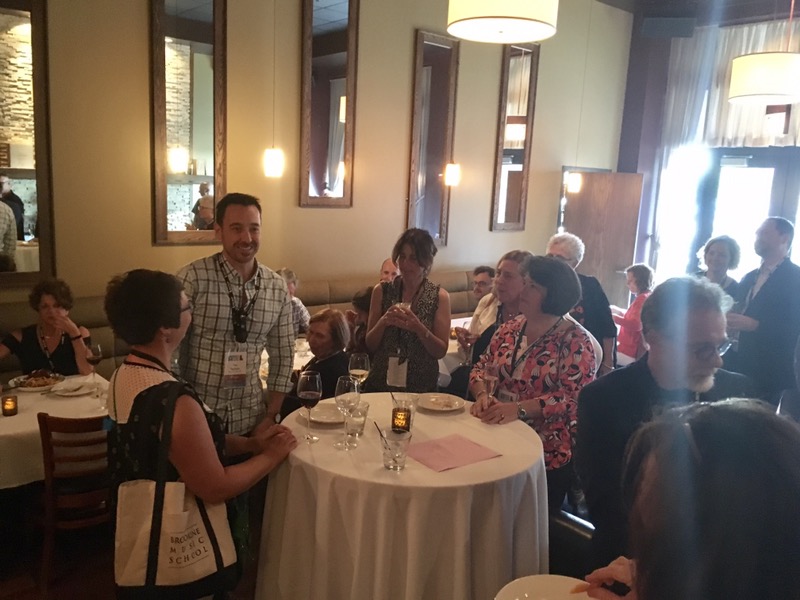
It was so fun to make some new friends and even meet a few of my blog readers!
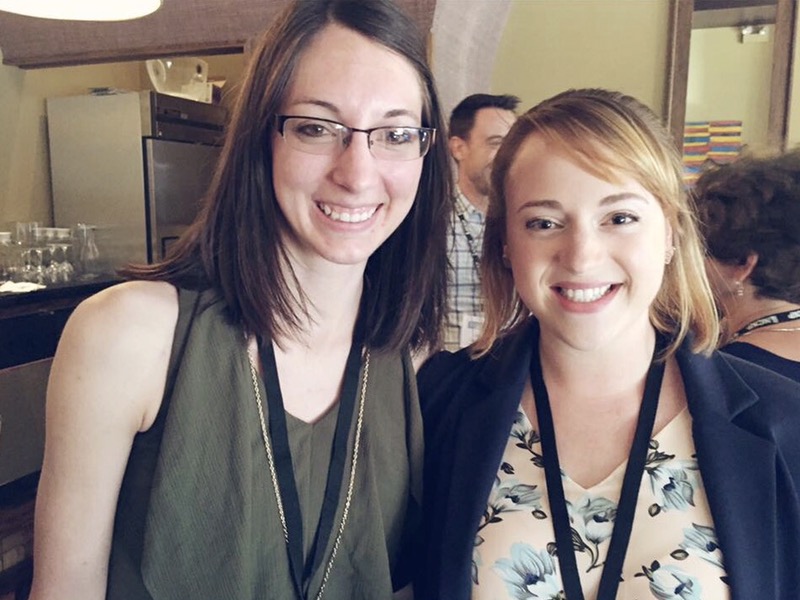
This gal took my online course, Excellence in Piano Teaching, back in January of 2016. Today, we got to meet in person for the first time! I was so excited to hear about how her studio and her teaching has been going.
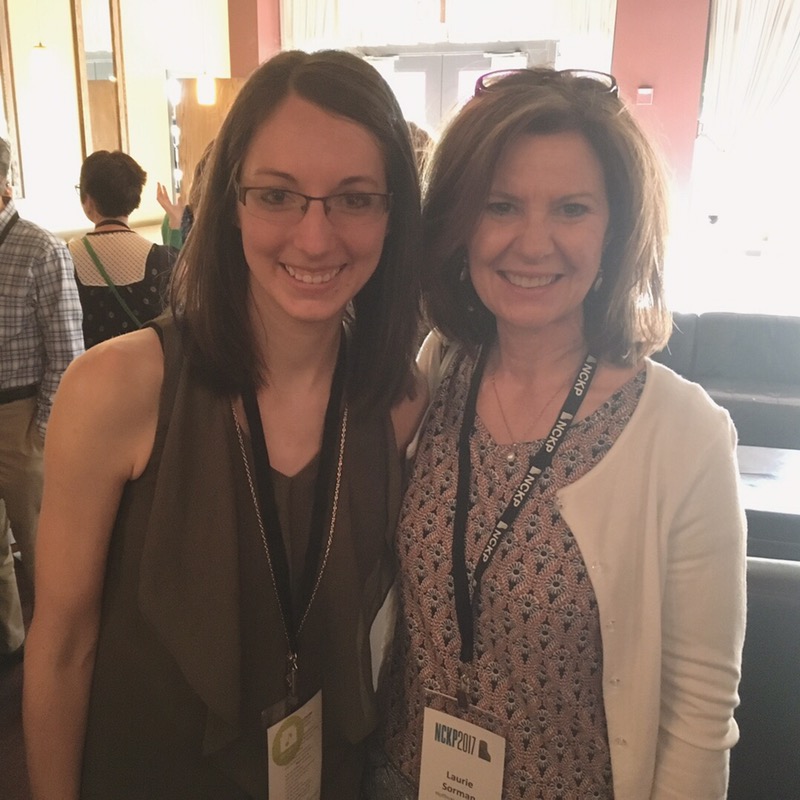
Click here for notes on Day 3!



Hi Joy,
Thank you for sharing all the exciting new music, ideas, etc you have experienced this summer.
I have not forgotten to send you my studio information 🙂
My Fall Semester started last week. I am just putting some polish on a couple of projects.
I will send you my info after the “Eclipse”.
My husband is into the heavens and stars.
We will be traveling to Missouri to see this neat event.
He has figured out how to take digital photos through his telescope.
He has some awesome photos of the Milky Way from Mount Rainer.
I saw the eclipse in 1979 my first year of teaching elementary music, out on the playground with the student body (700 students).
I do not teach lessons the first week of school, so the students can get use to their new routine.
Thanks for understanding. Ethelyn in Texas
Hi, Ethelyn!
How nice to hear about your and your husband’s eclipse adventures. My husband and I are talking about going out to see it this year, too.
Enjoy the rest of August, and I’m sure we’ll be in touch again soon!
Joy